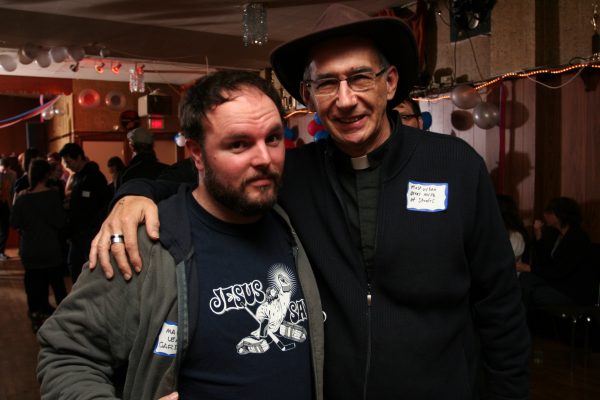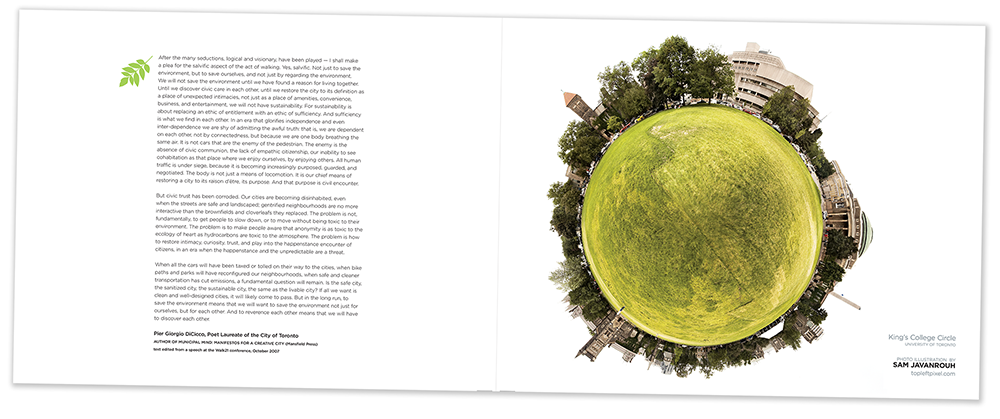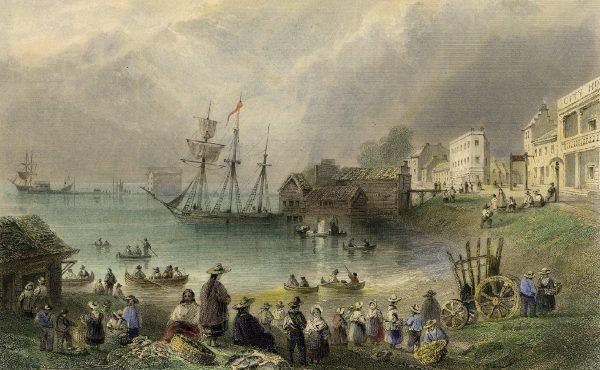In 2004, I was introduced to Pier Giorgio DiCicco, then recently unveiled at the City of Toronto’s poet laureate. Little did I know that I’d spark up a great friendship with a Catholic priest despite me being a raging atheist. Over the years, Giorgio would call me up and we’d go for a slow drive through the city’s neighbourhoods talking about the nature of city-building. Giorgio sadly passed away on December 22, 2019.
I will be speaking, along with a long list of of Giorgio’s friends and Toronto city-builders (including Spacing‘s Shawn Micallef), at a memorial next Tuesday. Below are the details of the event as well as a piece he contributed to Spacing from our Fall 2007 issue.
Honouring the life of Toronto’s 2nd Poet Laureate: Pier Giorgio Di Cicco
Join current City of Toronto Poet Laureate Al Moritz and many friends and colleagues as we celebrate the life of Pier Giorgio DiCicco who passed away on December 22, 2019
WHEN: Tuesday February 4, 2020 7-9 pm
WHERE: Toronto City Hall, Members Lounge
from the 10th issue of Spacing, fall 2007
After the many seductions, logical and visionary, have been played — I shall make a plea for the salvific aspect of the act of walking. Yes, salvific. Not just to save the environment, but to save ourselves, and not just by regarding the environment.
We will not save the environment until we have found a reason for living together. Until we discover civic care in each other, until we restore the city to its definition as a place of unexpected intimacies, not just as a place of amenities, convenience, business, and entertainment, we will not have sustainability. For sustainability is about replacing an ethic of entitlement with an ethic of sufficiency. And sufficiency is what we find in each other. In an era that glorifies independence and even inter-dependence we are shy of admitting the awful truth: that is, we are dependent on each other, not by connectedness, but because we are one body breathing the same air. It is not cars that are the enemy of the pedestrian. The enemy is the absence of civic communion, the lack of empathic citizenship, our inability to see cohabitation as that place where we enjoy ourselves, by enjoying others. All human traffic is under siege, because it is becoming increasingly purposed, guarded, and negotiated. The body is not just a means of locomotion. It is our chief means of restoring a city to its raison d’être, its purpose. And that purpose is civil encounter.
But civic trust has been corroded. Our cities are becoming disinhabited, even when the streets are safe and landscaped; gentrified neighbourhoods are no more interactive than the brownfields and cloverleafs they replaced. The problem is not, fundamentally, to get people to slow down, or to move without being toxic to their environment. The problem is to make people aware that anonymity is as toxic to the ecology of heart as hydrocarbons are toxic to the atmosphere. The problem is how to restore intimacy, curiosity, trust, and play into the happenstance encounter of citizens, in an era when the happenstance and the unpredictable are a threat.
When all the cars will have been taxed or tolled on their way to the cities, when bike paths and parks will have reconfigured our neighbourhoods, when safe and cleaner transportation has cut emissions, a fundamental question will remain. Is the safe city, the sanitized city, the sustainable city, the same as the livable city? If all we want is clean and well-designed cities, it will likely come to pass. But in the long run, to save the environment means that we will want to save the environment not just for ourselves, but for each other. And to reverence each other means that we will have to discover each other.
Pier Giorgio DiCicco, Poet Laureate of the City of Toronto
author of Municipal Mind: Manifestos for a Creative City (Mansfield Press)
– text edited from a speech at the Walk21 conference, October 2007, in Toronto



